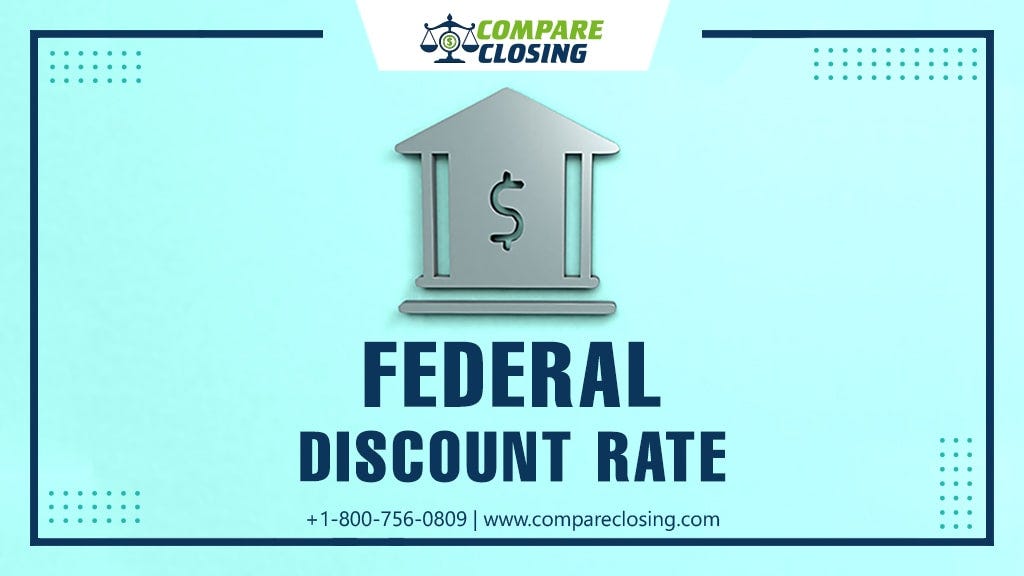
What Is A FED Discount Rate?
The interest rate set by Federal Reserve (Fed) on loans extended by the central bank to commercial banks or other depository institutions is termed as the FED discount rate.
By fiddle with the discount rate the central banks like the Fed can decrease liquidity problems and the pressures of reserve requirements; they can manage the supply of money in the economy and in the process assure stability in the financial markets.
How Does The Federal Discount Rate Work?
The Fed banks provide monetary policy and regulatory tools, and they can also provide directly to member banks and depository institutions.
The primary purpose of the Fed as a lender of last resort is to ensure the stability of the banks and the financial system.
Healthy banks are allowed to borrow all they want at very short maturities from the Fed’s discount window to prevent undue bank failures, and it is hence referred to as a standing lending facility.
Usually, on the overnight lending market, the banks prefer to borrow from one another. Some banks facing higher liquidity needs are at times unable to raise the necessary funds in the open market.
Fed discount lending serves as an emergency backstop once the interbank overnight lending system has been maxed out, it provides liquidity to such banks so as to prevent them from falling.
The interbank rate, which is also called the Fed funds rate, is lower than the discount rate.
Hence the commercial banks would prefer to borrow from another commercial bank instead of the Fed till the time the Fed funds rate is lower than the discount rate.
In most circumstances, this results in the total amount of discount lending being very small and intended only to be a fallback of liquidity for sound banks.
Three Discount Rates
The primary or secondary credit comes under discount lending. There is a regular discount rate put by the Feds for non-emergency loans to banks that supply agricultural and other communities where credit demand is quite seasonal.
Depository institutions and commercial banks that generally have a good financial condition are eligible to borrow from their regional Fed banks at a primary credit rate.
These rates are referred to as discount rates. Funds for commercial banks that are rented from the Fed are processed in the course of the discount window, and the rate is reviewed every 14 days.
Banks that are in financial trouble and are going through severe liquidity problems are given secondary credit.
The interest rate on secondary credit by the central bank is usually set at 50 basis points which are 0.5 % points above the discount rate.
The interest rate on these loans is set at a superior penalty rate to show the not-so-good situation of these borrowers.
The Discount Rate In Regards To Monetary Policy
The federal discount rate plays an important role in preventing bank failures, and it is used as a tool to either energize expansionary monetary policy or lead to contractionary monetary policy in the economy.
A decrease in the discount rate allows the commercial banks to borrow money for a cheaper rate, this leads to an increase in available credit and lending activity throughout the economy.
On the contrary, it becomes more expensive for banks to borrow with a raised discount rate and thereby resulting in a reduction of the money supply while withdrawing investment activity.
Apart from setting the discount rate, the Fed has many other monetary policy tools at its disposal.
Through open market operations (OMO) in U.S. Treasury markets, and by raising or lowering reserve requirements for private banks the Feds can influence the credit, money supply, and interest rates.
The reserve requirement is the portion of a bank’s deposits that must be held in cash form, either within its own vaults or on deposit at its regional Fed bank.
When the reserve requirements are higher, the tighter is the situation for the banks to leverage their liabilities or deposits.
Federal Discount Rate vs Federal Funds Rate?
The interest rate that the Fed charges on loans are the federal discount rate. It is very different from the federal funds rate, which is the rate that banks charge one another for loans that are used to hit reserve requirements.
The Fed’s board of governors determines the discount rate, whereas the federal funds rate, is set by the market between member banks.
A target for the fed funds rate is set by the Federal Open Markets Committee (FOMC), which it tracks through the open sale and purchase of U.S. Treasuries, the discount rate on the other hand is reached solely through review by the board of governors.
The federal funds rate target is typically lower than the discount rate, by close to 100 basis points / 1 % point, because as per the central bank it is ideal that banks borrow from each other so that they continually monitor each other for credit risk and liquidity.
Conclusion
The interest rate the Federal Reserve (Fed) takes banks to borrow funds from a Federal Reserve bank is recognized as the federal discount rate.
The Fed’s board of governors set the Fed discount rate, as a tool of monetary policy it can be adjusted up or down.
Lending at the discount rate is one of the Fed’s primary monetary policy tools and part of the Fed’s function as a lender of last resort.
https://www.compareclosing.com/blog/what-is-a-fed-discount-rate/
Comments
Post a Comment